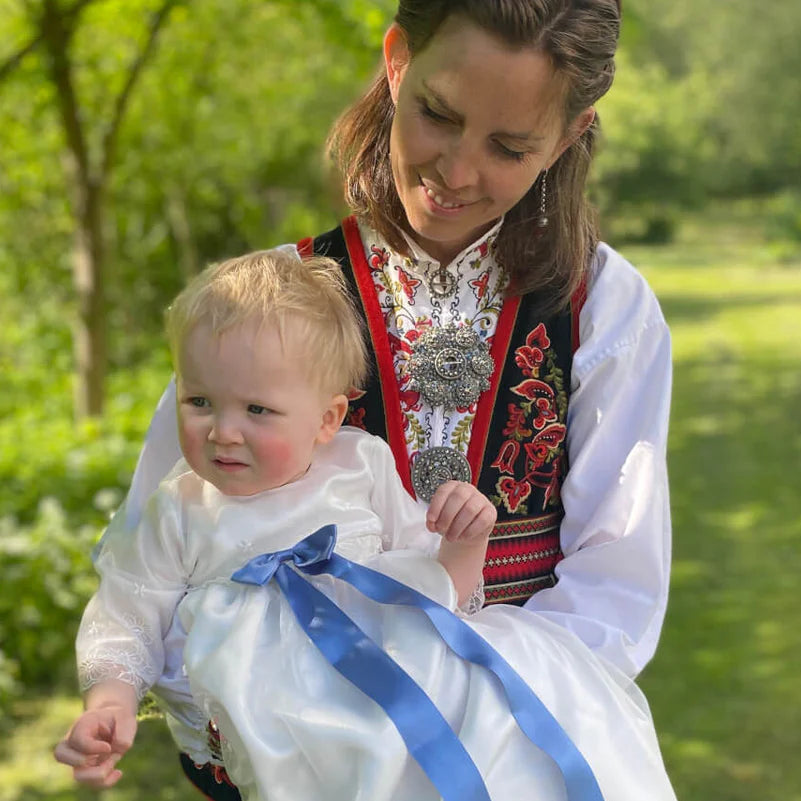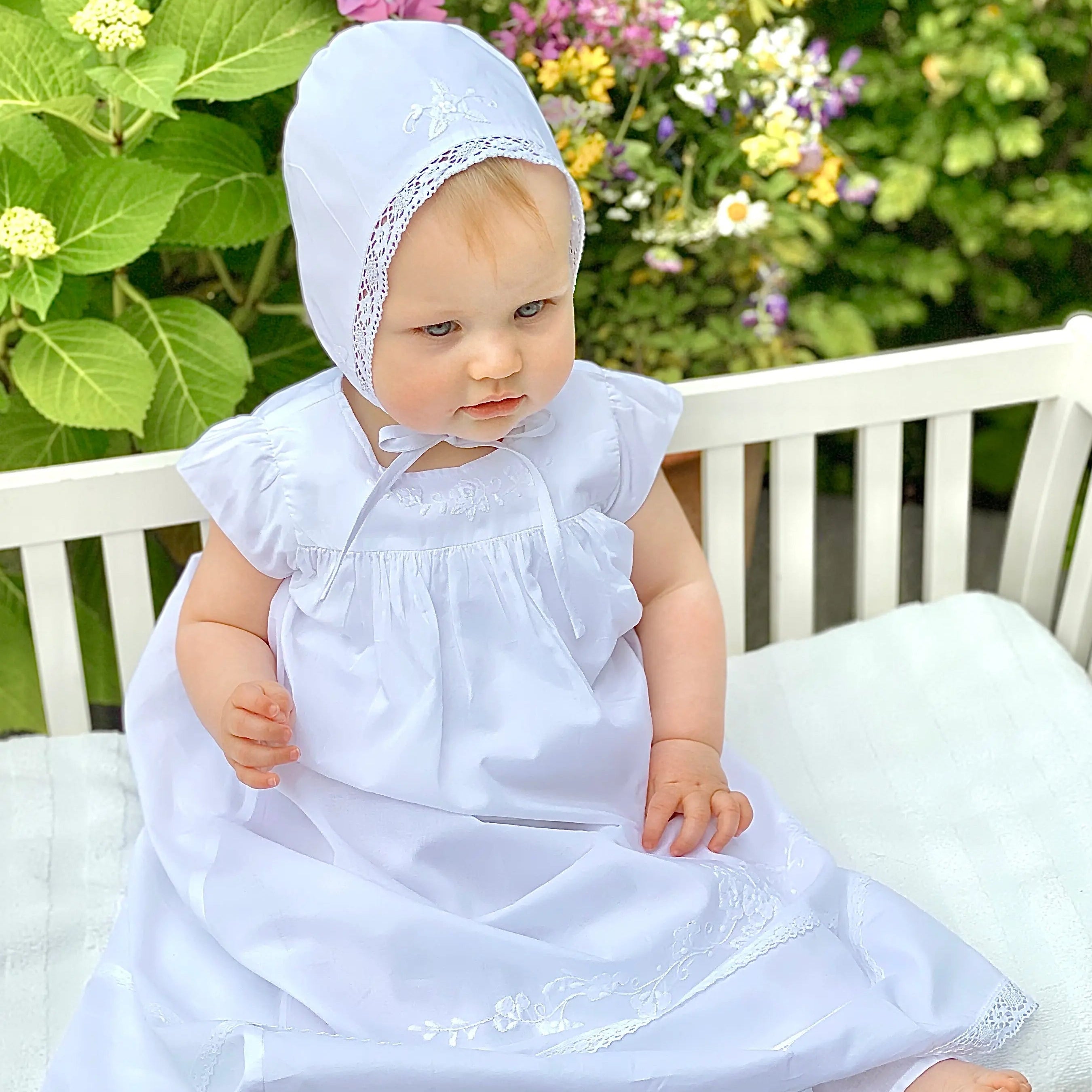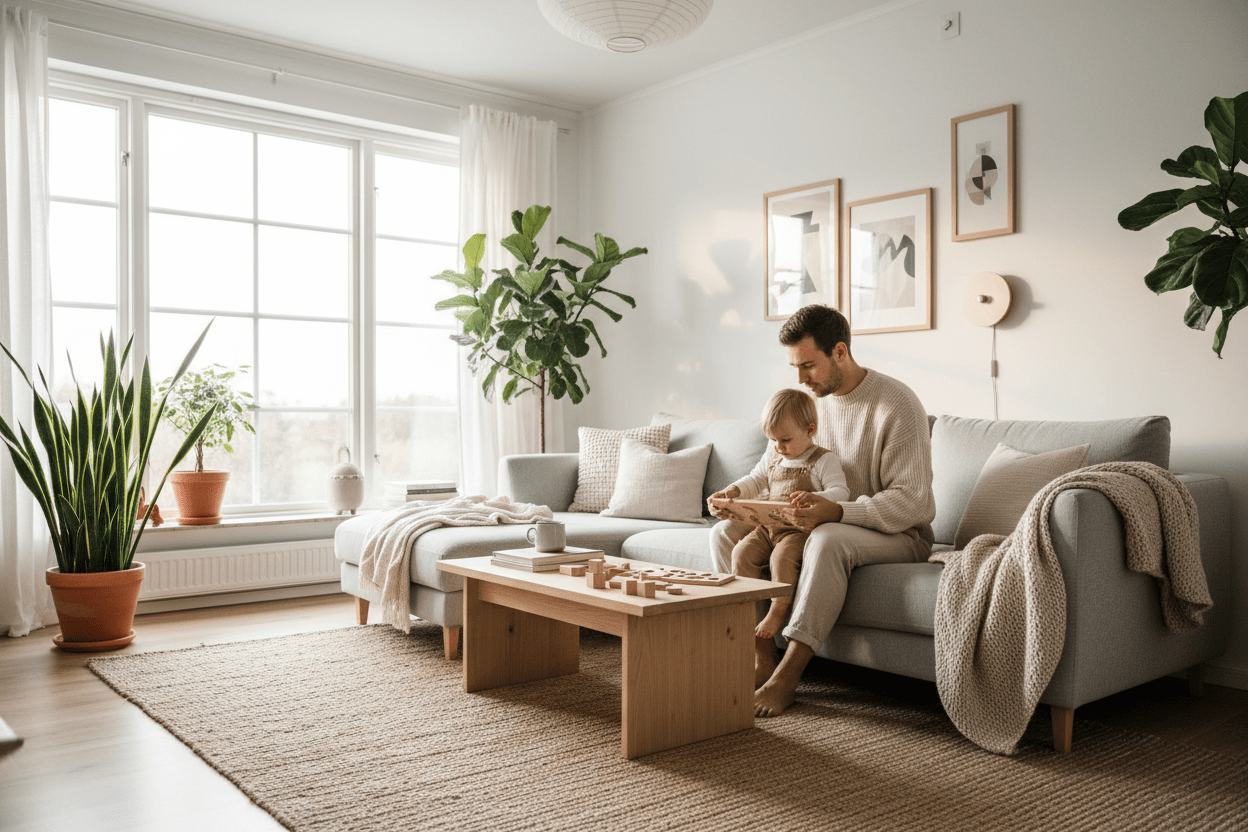Article: The Principles of Nordic Parenting: Simple & Connected

The Principles of Nordic Parenting: Simple & Connected
Overview
Nordic parenting emphasizes simplicity, connection, and emotional well-being, fostering resilience and independence in children. Key principles include valuing outdoor play, promoting emotional intelligence over academic pressure, encouraging independence, and maintaining a healthy work-life balance. Families can implement these ideas by decluttering their environment, prioritizing outdoor activities, encouraging open communication, and establishing family rituals. Adopting Nordic parenting principles can create a nurturing and balanced family life.
Navigating the world of parenting can be overwhelming, especially with the endless influx of advice and trends that come and go. However, one approach that has stood the test of time is Nordic parenting. Rooted in simplicity and connection, Nordic parenting emphasizes the joy of childhood, the importance of family bonds, and the value of a balanced lifestyle. In this article, we will explore the core principles of Nordic parenting, how they can foster resilience and independence in children, and ways to embrace this thoughtful approach in your own home.
What is Nordic Parenting?
Nordic parenting refers to the child-rearing practices found in the Nordic countries: Denmark, Finland, Iceland, Norway, and Sweden. These countries consistently rank high in global happiness and quality-of-life indices, and their parenting philosophies contribute significantly to that success. At its heart, Nordic parenting prioritizes simplicity, connection, and the emotional well-being of both children and parents. This article delves into several fundamental principles that define this unique approach.
Embracing Simplicity
Less is More
One of the foundational aspects of Nordic parenting is the idea that less is more. This principle can be applied not only to the physical environment but also to the structure and pressures of modern life. Reducing clutter in homes and schedules allows for a more relaxed atmosphere. In Nordic countries, it's common for families to prioritize quality over quantity. Instead of filling children's time with endless extracurricular activities, parents encourage free play and exploration. This approach fosters creativity and independence while allowing children to learn at their own pace.
The Importance of Outdoor Play
Nordic parents have long recognized the value of outdoor play, regardless of the weather. In fact, many families embrace the phrase, "there's no such thing as bad weather, only bad clothing." The outdoors offers children the opportunity to engage with nature, foster curiosity, and develop resilience. By allowing children to play outside daily, even in colder months, parents encourage a deeper connection to their environment and promote physical health. Outdoor play is an essential aspect of a child's development and a cornerstone of the Nordic parenting approach.
Prioritizing Connection
Emotional Intelligence Over Academic Pressure
The Nordic approach places a strong emphasis on emotional intelligence and healthy relationships over academic achievement. Parents create a safe and nurturing environment where children can express their emotions freely. This practice builds strong foundations for lasting relationships and strong self-esteem. Emphasizing connection helps parents teach empathy, respect, and conflict resolution—skills that are often overlooked in more competitive educational systems.
Dinner Time as Family Time
In Nordic families, meal times are sacred. Sharing meals together allows families to connect and engage with one another without distractions. This daily ritual fosters open communication and strengthens family bonds, which cultivates a sense of security for children. Whether it's breakfast, lunch, or dinner, the focus during these meals is on connection, conversation, and shared experiences rather than just eating. This tradition can easily be incorporated into your family life to nurture relationships.
Encouraging Independence and Resilience
The Balance Between Freedom and Responsibility
Nordic parenting promotes independence from an early age. Parents believe that children should have the freedom to explore their surroundings and take age-appropriate risks. This can range from letting toddlers play alone in a safe yard to allowing older children to walk to school on their own. By giving children some autonomy, they learn valuable problem-solving skills and gain confidence in their ability to handle challenges.
Accepting Failure as a Learning Opportunity
Another essential aspect of resilience is recognizing that failure is part of life. In Nordic cultures, parents encourage a healthy attitude towards setbacks. Instead of shielding their children from failure, they guide them to see mistakes as opportunities for learning and growth. This mindset helps cultivate grit and perseverance, equipping children with tools they will need in the face of challenges later in life.
Encouraging a Balanced Life
The Role of Work-Life Balance
Work-life balance is a crucial principle in Nordic parenting. Parents strive to strike a healthy balance between work and family life. In many Nordic countries, generous parental leave policies and flexible work hours contribute to this balance. When parents prioritize time with their children, they model the importance of family connections and the value of self-care. Creating a family environment where balance is revered helps children appreciate their well-being as they grow and develop their own priorities.
Mindfulness and Relaxation
In the hustle and bustle of everyday life, Nordic families make time for mindfulness and relaxation. Whether through storytelling, engaging in artistic activities, or simply taking a quiet moment together at home, these practices create a serene atmosphere. Encouraging children to engage in relaxation techniques, such as deep breathing or mindful observation, can help them cope with stress and anxiety. By incorporating moments of calm into daily schedules, families promote emotional stability and resilience.
Tips to Implement Nordic Parenting Principles
Creating a Simple Home Environment
To embrace Nordic parenting, start by decluttering your living space. Aim for a balanced environment that encourages play and creativity. Create designated areas for toys, craft materials, and books, allowing for easy access and organization. A tidy environment promotes tranquility and enhances the opportunities for meaningful interactions.
Make Outdoor Play a Daily Routine
Commit to spending time outdoors each day, whether it's a short walk in the park or an afternoon in the backyard. Equip your children with weather-appropriate clothing and encourage them to explore their surroundings. Outdoor play can take many forms, such as hiking, biking, or simply playing games in nature. The essential part is that children should have the space to connect with the natural world.
Encourage Open Communication
Foster an environment where children feel safe expressing their thoughts and emotions. Set aside time for family discussions during meal times or establish a nightly routine where everyone shares something positive about their day. This practice nurtures emotional intelligence and encourages strong family bonds.
Promote Independence Gradually
Start by allowing your children to make small choices, such as selecting their outfits or planning family activities. As they grow, gradually increase their responsibilities and freedoms. Check in with them regularly and offer guidance as needed. By promoting independence at a manageable pace, you help your children develop confidence and resilience without feeling overwhelmed.
Establish Family Rituals
Creating rituals can strengthen family connections and bring a sense of stability. Consider starting weekly movie nights, game nights, or nature hikes. Consistent rituals provide opportunities for bonding while allowing everyone to anticipate cherished moments together. Incorporating these traditions into your lives endorses the values of connection, love, and support.
Unlocking the Secrets of Nordic Parenting
The principles of Nordic parenting transcend geographical boundaries and provide valuable insights that can be applied to families worldwide. By embracing simplicity, fostering meaningful connections, encouraging independence, and promoting emotional well-being, you can create an environment that nurtures the next generation. As you implement these principles, remember that the journey of parenting is unique for everyone. Approach each day with intention and an open heart, allowing the essence of Nordic parenting to inform your family's values and experiences.
Ultimately, every family has the potential to create a nurturing, balanced environment that prioritizes love and connection. By adopting elements of Nordic parenting and embodying these principles in your everyday life, you cultivate a sense of belonging, resilience, and harmony that will nurture your children for years to come. With your commitment, you'll be well on your way to creating a fulfilling family life, rich in simplicity and deep connections.

















